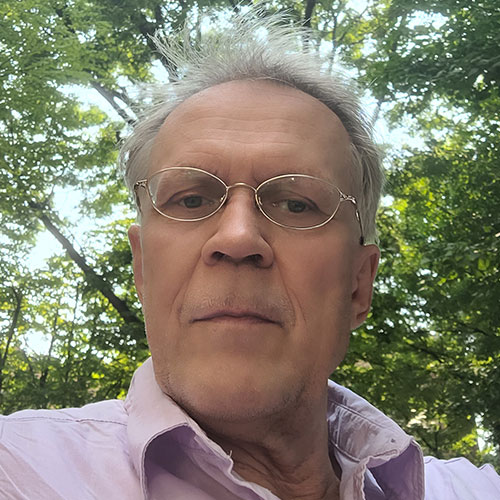
Walter Vogl
Walter Vogl, PhD, born 1958 in Wolfsberg/Austria. Resident of Tokyo since 1992. Literary scholar, critic and author. Professor of German Studies at the Faculty of Commerce at Keio University. Involved in introducing contemporary Austrian literature to Japan through the „Seminar for contemporary Austrian Literature“ (www.onsem.info) since 1992.
Austria is a small country, but a major player in the field of literature. Very few countries can boast of having two living writers who won the Nobel Prize (Elfriede Jelinek and Peter Handke). Polyphony, awareness of form, diversity, a sense for the comic, the offbeat and the absurd, radicalism in political criticism as well as a historically rooted skepticism towards grand narratives and a high degree of openness are some of the main characteristics of Austrian literature, which occupies a special position in the German-speaking world. The reasons for this are manifold. They include, for example, a high level of public subsidies, a continuing high appeal of a career in writing and, accordingly, a lot of competition among writers. In addition, the space in which Austrian literature unfolds is not identical with the borders of today’s small state, but must be seen against the background of the Habsburg Empire.
Austrian literature took its place within the great national literatures of Europe with a certain delay, namely in the 19th century. This is due to the fact that historically the preferred forms of representation in the multiethnic Habsburg monarchy were music, the visual arts and theater. A certain baroque exuberance in phrasing as well as a language that is not kept flat as in discourse, and the conviction that the whole world is a stage, are the consequences of this development. A major break in the history of Austrian literature was the period of National Socialism, after which it took a good decade of reorientation to catch up with the latest trends of the international avant-gardes. In the mid-1950s, the Vienna Group emerged, deriving their poetry from various linguistic theories, but also incorporating elements from the Baroque, Expressionism, Dadaism, local dialects and language-critical philosophy. Ernst Jandl (1925-2000), who enriched his minimalist poems with anarchistic humor and thus opened up new audiences for poetry, was the most internationally acclaimed representative of the Vienna Group. In the field of prose, the most powerful new literature from the 1960s onwards came from the Graz Group. These avant-garde traditions still resonate in the works of younger authors like Clemens J. Setz or Xaver Bayer. In addition to works experimenting with language, a new and very critical Heimatliteratur focusing on aspects of life in the traditionalist rural backwaters emerged. Gerhard Roth (1942-2022) and Michael Köhlmeier somehow managed to fuse the experimental with the provincial and the political. However damning its verdict on the political class, Austrian literature after 1945 has been a pillar of nation building.
Elfriede Jelinek has provoked numerous scandals due to her radical critique of Austria and her pointing out of connections between sexuality, perversion, power and historical oblivion. This is equally true of Thomas Bernhard (1931-1989), who, like Jelinek, was both a major novelist and playwright, and who has exposed the contradictions of the Austrian state with abysmal wit and radical negativity. Peter Handke, one of the most powerful poets of our time, completes this trinity. His commitment to Serbia during the Yugoslav wars in the 1990s led to fierce criticism. Political action and the cult of language go hand in hand for these writers. The language-fixation of large parts of post-World War II Austrian literature, which was incessantly self-reflective, gradually led to a certain disdain for realistic traditions. Fortunately there is Daniel Kehlmann, who is Austrian and German and who set the record straight with international bestsellers like „Measuring the World“ (2005).
Starting in the 1970s, a period of sincere reappraisal of Habsburg heritage and Jewish traditions that were lost through murder, exile and expulsion began. Authors like Robert Schindel and Robert Menasse mark a new dawn of Viennese Jewish Literature that is closely linked to the milieu of the student revolt of the 1960s and to Viennese coffeehouse literature around 1900.
In recent decades, more and more women writers have left their mark on the literary scene, with Ingeborg Bachmann (1926-1973), Ilse Aichinger (1921-2016) and Friederike Mayröcker (1924-2021) being their patron saints. Marlene Streeruwitz, Monika Helfer, Anna Mitgutsch as well as Eva Menasse, Kathrin Röggla and Sabine Gruber are currently among the most outstanding representatives. They deal with the shadows of the Third Reich as well as with topics as varied as postwar Italian cinema and child abductions. Postcolonial literature, migration literature, intercultural literature, transcultural literature and postmigrant literature are also playing an important role in the increasingly differentiated Austrian literary scene. Ukranian born Tanya Malyarchuk has made Austria her adopted homeland and now writes in Ukrainian and German. In her dystopian novels she is dealing with fear, oblivion and the difficulties of emigrant life. Ana Marwan, one of the new shooting stars, also writes in two languages, in her native Slovenian and in German. The Korean-born Austrian author Anna Kim, who writes in German, is dealing with war and alienation and is fascinated by empty landscapes, darkness and ice, very much like Christoph Ransmayr, whose finely chiseled language made him the leading postmodernist in the 1980s alongside Peter Rosei. Both are world travelers and have published some of the finest examples of travel writing in German. Milena Michiko Flašar, who has spiced up Austrian literature by being receptive to Japanese pop culture, is yet another example of the high degree of its internationalization.